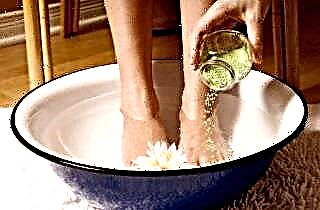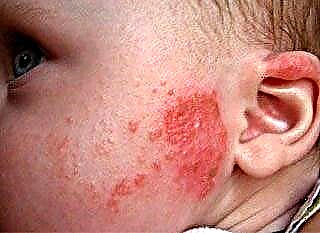When a toddler gets sick, caring parents are worried. And it’s not unreasonable. How to stop a child's cough? How to soften a child's cough? How to help a child with a cough? What if the disease starts to progress at an accelerated rate? With these questions, some mothers and fathers immediately rush to the doctors. Others organize an infirmary at home and treat the cough of their beloved child with traditional medicine. They think they know best how to quickly cure a child's cough. What is the right thing to do? What should and should not be done? How to treat a child's cough and what methods to use for this? Let's try to figure it out.
When treatment is required
 It should be noted that until the child is 1 year old, coughing can be a physiological phenomenon that does not require intervention. But still, in most cases, it signals the development of a disease in the child's body. Therefore, treatment of cough in children is necessary and should be prescribed by an experienced specialist. For a competent fight against the disease, parents must calm down and do not eliminate the symptom, but treat the reason for which it appeared. So, we will tell you how to calm a child's cough and cure the disease of which it is a symptom.
It should be noted that until the child is 1 year old, coughing can be a physiological phenomenon that does not require intervention. But still, in most cases, it signals the development of a disease in the child's body. Therefore, treatment of cough in children is necessary and should be prescribed by an experienced specialist. For a competent fight against the disease, parents must calm down and do not eliminate the symptom, but treat the reason for which it appeared. So, we will tell you how to calm a child's cough and cure the disease of which it is a symptom.
It is imperative to treat a cough if a child has:
- the temperature rises or persists for 3 days in a row;
- no appetite;
- the coughing attack began suddenly and does not end;
- wheezing is clearly heard during inhalation and exhalation;
- coughing up sputum is green or bloody;
- the cough does not stop for more than a month;
- coughing attacks occur at night and do not provide an opportunity to fully rest.
Varieties of cough
 By the nature of the cough, there are 2 types:
By the nature of the cough, there are 2 types:
- Dry (considered unproductive). A characteristic feature is the absence of sputum separation. He, in turn, is divided into 2 types:
- Barking - usually accompanied by partial or complete loss of voice, unpleasant tickling or sore throat. It appears in the very first days of development in the respiratory tract of a viral disease. In addition, such a cough can be a reaction to irritation of the mucous membrane of a mechanical nature.
- Paroxysmal - a frequent companion of tracheitis and bronchitis. Difficulty breathing and painful sensations in the chest can complement it.
- Wet (considered productive). Unlike dry, this type of cough is characterized by sputum production, which is called expectoration. Most often, it comes complete with wheezing, a feeling of heaviness and chest pain. It is caused not only by "classic" viral diseases, but also by serious diseases - for example, bronchitis and pneumonia.
 Depending on the duration, the cough is:
Depending on the duration, the cough is:
- The maximum duration does not exceed 3 weeks. It appears as a symptom of a disease of an infectious origin, as well as if you inhale poisonous substances, or when a foreign object gets on the mucous membrane.
- Usually lasts more than 3 weeks. Its appearance can be provoked by problems with the bronchi or lungs, mucus accumulating in the nasopharynx due to the inflammatory process, mental disorders, a reaction to any medicine, and so on.
Action plan
What if the child is both coughing and “happy” with other symptoms? Parents need:
- understand the condition of the baby, accurately determine the additional symptoms associated with cough;
- find out if any of the household members who communicated with the child had similar symptoms;
- carefully examine his skin and mucous membranes;
- measure the baby's temperature and record the indicators;
- consult a pediatrician.
How to properly treat dry and wet coughs
 An unproductive (dry) form of cough should be relieved. This can be done by eliminating the irritant and softening the mucous membrane. A momentary, but, unfortunately, temporary effect is inherent in special medicinal lozenges, gargling with medicinal herbs, as well as saline or mineral water (only alkaline). Medicines with a pronounced antiseptic, anti-inflammatory, enveloping and eliminating irritation effect are highly effective.
An unproductive (dry) form of cough should be relieved. This can be done by eliminating the irritant and softening the mucous membrane. A momentary, but, unfortunately, temporary effect is inherent in special medicinal lozenges, gargling with medicinal herbs, as well as saline or mineral water (only alkaline). Medicines with a pronounced antiseptic, anti-inflammatory, enveloping and eliminating irritation effect are highly effective.
The use of drugs aimed at suppressing the cough reflex in the brain is permissible only as prescribed by a doctor. For the treatment of childhood cough, they are used only as a last resort. They have a significant number of contraindications and the risk of developing adverse effects.
To alleviate the baby's condition with a wet cough, it is necessary to use drugs that help thin the mucus and its full discharge. It is necessary that the child can begin to cough up his throat efficiently. Such drugs increase the volume of sputum secreted and actively fight germs.
Pills or syrup?
 Children's antitussive pills are a fairly widespread category of drugs. They are needed to help the body fight the disease that triggered the cough. It is very important to realize that the absorption of any pill occurs at the gastrointestinal tract level. They do not have a local effect directly on the baby's throat. In general, these medicines are aimed at eliminating the main cause of the cough. So, how to cure a child's cough and not harm his health with drugs?
Children's antitussive pills are a fairly widespread category of drugs. They are needed to help the body fight the disease that triggered the cough. It is very important to realize that the absorption of any pill occurs at the gastrointestinal tract level. They do not have a local effect directly on the baby's throat. In general, these medicines are aimed at eliminating the main cause of the cough. So, how to cure a child's cough and not harm his health with drugs?
The most popular pill cough suppressants are:
- "Mukaltin" - belongs to the group of mucolytics. Available in almost every pharmacy. Budget cost. In addition, children perceive this drug perfectly, side effects are practically not observed. If you are considering treating a cough, but children have a number of additional symptoms or are not yet 3 years old, consult at least a pharmacy pharmacist. Tell him about the main symptoms, the form of the cough, and be sure to indicate the age of the baby. Then the pharmacist will be able to tell whether it is advisable to use this particular drug.
- "Codelak Broncho" and "Termopsol" help well to soothe a child's cough. Before buying, parents need to carefully read the composition of the first of them. If it contains codeine (a narcotic substance), children should not take it.
- Bromhexin and Ambroxol also have a calming effect on the baby's lungs. The first drug can be prescribed for a cough in a child only if its origin has nothing to do with viruses.
- Geromirtol is an excellent remedy for seizures that occur if a child suffers from acute or chronic bronchitis. However, before buying this medication, check that it is age-appropriate for your baby.
 If you find it difficult to explain where the cough came from, it is better to opt for syrup. It will reduce the intensity of this symptom. Antitussive syrups designed specifically for children are an excellent intermediate. It will help in the elimination of the main symptoms of choking, until you consult a doctor. The syrup is good as an "ambulance" before going to the doctor.
If you find it difficult to explain where the cough came from, it is better to opt for syrup. It will reduce the intensity of this symptom. Antitussive syrups designed specifically for children are an excellent intermediate. It will help in the elimination of the main symptoms of choking, until you consult a doctor. The syrup is good as an "ambulance" before going to the doctor.
Parents should remember that before relieving the cough (the child should feel better), you need to show the baby to the pediatrician. An experienced specialist will establish an accurate diagnosis, recommend the most effective drugs and advise which ones to take immediately and which ones - later.
Effective traditional medicine
 When a cough is observed in children, then medication treatment can be qualitatively supplemented with the use of traditional medicine. The latter can be divided into 3 types:
When a cough is observed in children, then medication treatment can be qualitatively supplemented with the use of traditional medicine. The latter can be divided into 3 types:
- distracting procedures (compresses, mustard plasters, wrapping and warming foot baths);
- inhalation;
- means prepared on the basis of medicinal plants.
Distracting procedures
This is a local method of influencing the child's body. It helps to enhance local blood circulation. Thanks to this, the immune system is strengthened, pain is reduced and inflammation gradually disappears. So the child is coughing. And what to do? Compresses, of course.
Compresses to this day are considered one of the most effective distracting procedures. Here are a couple of recipes that will ease a child's severe cough:
- From potatoes. Boil in uniforms a couple of medium-sized potatoes. Peel and mash them. Add alcohol or cologne (1 tablespoon) and vegetable oil mixed with turpentine (2 teaspoons). Mix the resulting mass thoroughly and mold a couple of cakes from it. One should be placed on the baby's chest and the other on the back. Wrap the child well and put him to bed. It is allowed to shoot in about 1-1.5 hours.
 From vegetable oil. Heat any vegetable oil and soak a towel in it (use one that you will not mind throwing away later). Then squeeze it well. Wrap your baby in an oil-soaked towel and wrap it over with a warm scarf or blanket. Give your child some sweatshop tea to drink and put him to bed. If the child sweats properly in a dream, this is a sign that the remedy is working. Just change it into something dry.
From vegetable oil. Heat any vegetable oil and soak a towel in it (use one that you will not mind throwing away later). Then squeeze it well. Wrap your baby in an oil-soaked towel and wrap it over with a warm scarf or blanket. Give your child some sweatshop tea to drink and put him to bed. If the child sweats properly in a dream, this is a sign that the remedy is working. Just change it into something dry.
Warming foot bath
What to do if a child coughs and, in addition, has a sore throat? You can start to warm up the legs. For such a procedure, you will need to take 2 full tablespoons of mustard powder and dissolve them in 10 liters of clean hot water. Warm up the legs for at least 15 minutes.
Mustard is absolutely safe. It is allowed even for babies. For them, by the way, you can do mustard wraps. You will need to take a full tablespoon of mustard powder and dissolve it in 0.5 liters of pure water. Soak diapers in the resulting solution and wrap the crumbs with them. The procedure is short - after 3-4 minutes the child already needs to be deployed. After completing the wrap, wipe the baby with clean water, change into clean water and let him sleep.
Inhalation method
 Cough inhalation was treated in antiquity. In other words, the effectiveness of this method has been proven over time. Today you can buy a very comfortable and functional steam inhaler. True, those who wish can return, as they say, to the origins and use the old "grandmother's" way - to breathe over the steam emanating from a pot of potatoes. This procedure will alleviate the existing symptoms, and the child will gradually stop coughing.
Cough inhalation was treated in antiquity. In other words, the effectiveness of this method has been proven over time. Today you can buy a very comfortable and functional steam inhaler. True, those who wish can return, as they say, to the origins and use the old "grandmother's" way - to breathe over the steam emanating from a pot of potatoes. This procedure will alleviate the existing symptoms, and the child will gradually stop coughing.
If you have already acquired a steam inhaler, then you can add a couple of teaspoons of thyme, coltsfoot or chamomile herb to the water (all of which are optional). Wait for the water to boil. After boiling, add just a couple of drops of healing essential oil (eucalyptus is a great option). We treat the child with this herbal inhalation for 10 minutes.
Herbal Recipes
 What to do when a child coughs if there are medicinal plants at hand? Of course, to prepare healing potions from them.
What to do when a child coughs if there are medicinal plants at hand? Of course, to prepare healing potions from them.
- Radish syrup. To prepare it, you need to cut off the top of the radish in the form of a lid. Then carefully cut the middle out of it and place a full tablespoon of sugar or natural honey in its place. Cover the top with a lid from the top of the radish cut at the very beginning. In just 4-5 hours you will have a ready-made syrup. The child will need to take it throughout the day.
- Take viburnum berries (1 standard glass) and boil them in a liter of clean water. Strain the resulting broth thoroughly through a piece of gauze. Wait for the broth to cool slightly and add 2-3 tablespoons of natural honey to it. A coughing child should drink such a medicinal compote about 3-4 times a day.
- If a child has a chronic cough, an infusion of marshmallow root will help to cope with it. Take a tablespoon of marshmallow root and fill it with a standard glass of clean, cold water. The medicine should be infused for about an hour. Then strain it thoroughly through a piece of cheesecloth. You can add some natural honey to taste. It is necessary to consume such a compote every 2 hours a teaspoon.
If you have tried all the traditional medicine methods listed here, and there is no result, you still have to contact a pediatrician. He will give a more accurate answer to the question of how to relieve a child's cough, and how to get rid of the disease that provokes him.
Absolutely forbidden
 When treating your child's cough, you need to constantly remember that mistakes and errors in this case are unacceptable. Most often, parents make two very serious mistakes. It is absolutely impossible to repeat them - in order to avoid harm to the health of the baby. Forbidden:
When treating your child's cough, you need to constantly remember that mistakes and errors in this case are unacceptable. Most often, parents make two very serious mistakes. It is absolutely impossible to repeat them - in order to avoid harm to the health of the baby. Forbidden:
- Unauthorized to give the baby a drug to suppress the cough reflex. With a dry cough, mucus will accumulate in the lungs without its subsequent excretion. In addition, bacteria or viruses occupy the pulmonary walls of the lungs, provoking the occurrence of complications (for example, pneumonia, bronchitis, and so on).
- Give the child 2 types of drugs at the same time - an expectorant and an antitussive. In this case, fluid will accumulate in the lungs, and the baby will not be able to cough it up.
Prevention measures
It is quite possible to prevent the appearance of a cough in a child. Even if he did appear, you can not let him drag on. To do this, you will need to strictly adhere to several rules:
- no smoking in the apartment (house);
- humidify the air regularly (this rule is especially true when the heating season is open);
- do not inhale the vapors of any chemicals;
- do not overcool and try not to allow a sharp change in temperature;
- during seasonal epidemics, do not visit crowded places.
Let's summarize
 The use of any medications for a child who begins to cough must be strictly agreed with the doctor. Before starting to take medications, it is necessary to clarify the diagnosis, to give an objective assessment of the duration of the cough and the degree of intensity, as well as its productivity and the risk of bronchospasm. In other words, the answer to the question of how to quickly get rid of a cough should be sought only from a doctor.
The use of any medications for a child who begins to cough must be strictly agreed with the doctor. Before starting to take medications, it is necessary to clarify the diagnosis, to give an objective assessment of the duration of the cough and the degree of intensity, as well as its productivity and the risk of bronchospasm. In other words, the answer to the question of how to quickly get rid of a cough should be sought only from a doctor.
So what to do when a child is coughing and has other symptoms? First of all, it is necessary to humidify the air and create a comfortable coolness in the baby's room, as well as water him a lot and take him out for a walk at least every other day.

 From vegetable oil. Heat any vegetable oil and soak a towel in it (use one that you will not mind throwing away later). Then squeeze it well. Wrap your baby in an oil-soaked towel and wrap it over with a warm scarf or blanket. Give your child some sweatshop tea to drink and put him to bed. If the child sweats properly in a dream, this is a sign that the remedy is working. Just change it into something dry.
From vegetable oil. Heat any vegetable oil and soak a towel in it (use one that you will not mind throwing away later). Then squeeze it well. Wrap your baby in an oil-soaked towel and wrap it over with a warm scarf or blanket. Give your child some sweatshop tea to drink and put him to bed. If the child sweats properly in a dream, this is a sign that the remedy is working. Just change it into something dry.

